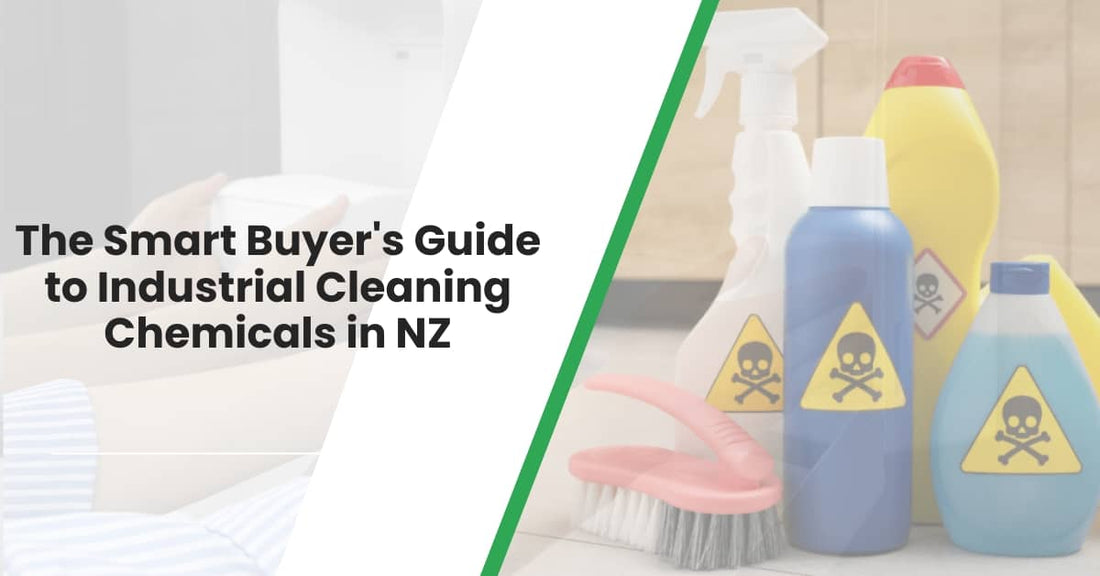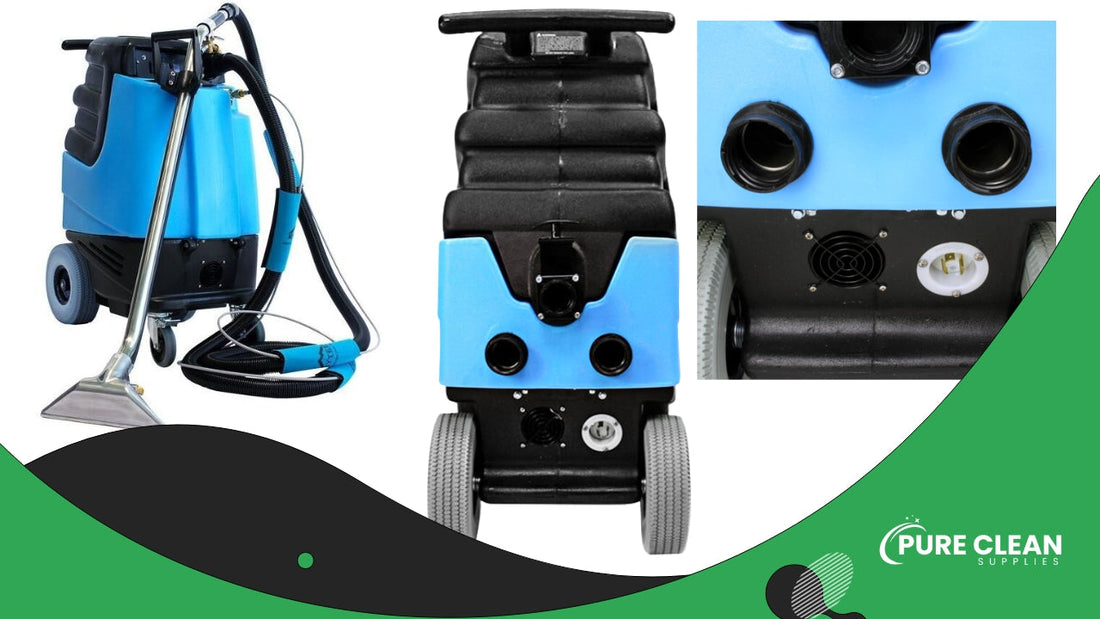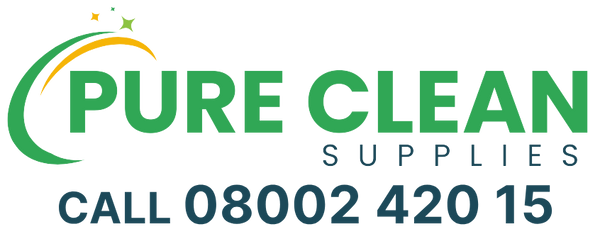






Small Business’ Commercial Floor Cleaner: Professional Results Without the Professional Price Tag
Your customers judge your business within seconds of walking through the door. Clean floors signal professionalism and attention to detail, while dirty or streaky surfaces suggest poor management and questionable hygiene standards. Small New Zealand businesses often assume professional floor care requires expensive commercial cleaning services, but smart owners achieve identical results using the right products and techniques. such as a reliable commercial floor cleaner designed for business-grade performance.
Auckland cafes spending $800-1200 monthly on professional cleaning services cut costs by 60-70% when they master commercial floor care products. The secret lies in understanding dilution ratios, selecting appropriate cleaners for specific floor types, and maintaining consistent cleaning schedules that prevent buildup, requiring expensive deep cleaning interventions.

Choosing Commercial Cleaners for Different Floor Types
Polished concrete floors dominate modern New Zealand commercial spaces due to their durability and contemporary appearance. These surfaces require pH-neutral cleaners that remove dirt without etching the concrete or dulling the polish. Acidic cleaners cause permanent damage, while alkaline products leave residue that attracts more dirt over time.
Commercial concrete cleaners like Diversey Taski R1 deliver professional results when diluted 1:80 with water. A 5-litre concentrate costs $45-55 and produces 400 litres of cleaning solution. This translates to $0.11-0.14 per litre of ready-to-use cleaner compared to $2.50-3.50 for retail floor cleaners at supermarkets.
Vinyl and linoleum floors in medical offices and retail spaces need specialised cleaners that remove scuff marks without damaging the surface coating. Hospital-grade cleaners meet stringent hygiene requirements while remaining gentle enough for daily use. Products like Ecolab P3-Topactive concentrate at a 1:200 dilution provide exceptional cleaning power for just $0.08 per litre of solution.
Timber floors in boutique shops and professional offices require careful product selection to avoid moisture damage or finish deterioration. Water-based commercial cleaners specifically formulated for sealed timber floors clean effectively without leaving streaks or dulling the finish. Never use traditional mopping methods on timber - microfiber systems with minimal moisture deliver superior results.
Ceramic tile floors with grout lines present unique cleaning challenges in high-traffic areas. Standard neutral cleaners handle daily maintenance, but weekly deep cleaning requires alkaline degreasers to remove embedded soil from grout. Diversey Suma Bac D10 at 1:40 dilution tackles tough grout stains while remaining safe for daily use on ceramic surfaces.
Epoxy-coated floors in workshops and industrial spaces withstand aggressive cleaning chemicals but benefit from regular maintenance with neutral cleaners. Save harsh degreasers for monthly deep cleaning sessions, using gentle products like Johnson Diversey Stride for daily maintenance. This approach extends floor life while maintaining a professional appearance.

Mastering Dilution Ratios for Maximum Cost Savings
Concentrated commercial cleaners offer massive savings when diluted correctly. A Wellington accounting firm reduced annual floor cleaning costs from $2,400 to $520 by switching from ready-to-use products to professional concentrates. Proper dilution equipment ensures consistency while maximising product lifespan.
Automatic dilution systems eliminate guesswork and prevent waste through over-concentration. Wall-mounted dispensers cost $150-200 but pay for themselves within 6-8 months through reduced product consumption. These systems also ensure HSNO compliance by maintaining consistent chemical concentrations.
Manual dilution requires accurate measuring tools and clear procedures. Invest in graduated measuring cups and create laminated instruction cards showing exact ratios for different cleaning tasks. Train all staff on proper mixing procedures to prevent waste and ensure consistent results across different shifts.
Colour-coded spray bottles prevent cross-contamination and dosing errors. Use blue bottles for glass cleaners, red for degreasers, and green for neutral floor cleaners. Label each bottle with product name, dilution ratio, and mixing date to maintain quality control and safety compliance.
Temperature affects dilution ratios and cleaning effectiveness. Hot water increases chemical activity, allowing weaker concentrations to achieve identical results. A Christchurch restaurant reduced cleaner usage by 25% by mixing solutions with 60-degree water instead of cold tap water.
Hard water requires adjusted dilution ratios to compensate for mineral interference. Auckland businesses with high calcium content may need 20-30% stronger concentrations to achieve optimal cleaning results. Test water hardness annually and adjust mixing ratios accordingly.

Workplace Safety Standards and HSNO Compliance
The Health and Safety at Work Act 2015 requires employers to provide safe working environments, including proper chemical handling procedures. Commercial cleaning products must display HSNO hazard classifications, and businesses must maintain safety data sheets for all chemical products used on premises.
Personal protective equipment becomes mandatory when using concentrated commercial cleaners. Safety glasses, rubber gloves, and closed footwear protect workers from chemical splashes and skin contact. Provide adequate ventilation during mixing and application to prevent inhalation of chemical vapours.
Chemical storage requires secure cabinets with appropriate hazard signage. Separate incompatible products to prevent dangerous reactions, and maintain storage temperatures within the manufacturer's specifications. Many cleaning supplies deteriorate rapidly when exposed to extreme heat or freezing conditions.
Emergency procedures must address chemical spills and accidental exposure. Install eyewash stations near chemical storage areas, and train staff on proper spill containment procedures. Keep absorbent materials and neutralising agents readily available for immediate response to accidents.
Documentation requirements include chemical inventories, staff training records, and incident reports. WorkSafe New Zealand inspectors review these records during workplace visits, and proper documentation demonstrates compliance with safety regulations. Update records immediately when introducing new products or procedures.
Regular safety training ensures all staff understand chemical hazards and proper handling procedures. Schedule quarterly training sessions covering new products, emergency procedures, and regulatory updates. Document training attendance and test employee knowledge through practical demonstrations.

Cost-Effective Equipment and Application Methods
Microfiber mopping systems revolutionise floor care through superior dirt removal and reduced chemical consumption. Flat mops with removable microfiber pads cost $30-45 initially but eliminate the need for traditional string mops and buckets. These systems use 70% less water and cleaning solution while delivering superior results.
Backpack sprayers increase application efficiency for large floor areas. Battery-powered units cost $200-300 but reduce labour time by 40-60% compared to traditional mopping methods. Calculate labour savings against equipment costs to determine payback periods for your specific situation.
Automatic scrubbers suit medium to large commercial spaces with smooth floor surfaces. Entry-level machines cost $2,000-3,500 but replace multiple staff hours daily while ensuring consistent cleaning quality. Lease options reduce initial capital requirements while providing regular maintenance support.
Steam cleaning equipment eliminates chemical requirements for certain floor types while achieving superior sanitisation results. Commercial steam mops cost $150-250 and work excellently on sealed hard surfaces. Operating costs include only electricity and water, making this approach highly economical for appropriate applications.
Scheduling optimisation reduces labour costs while maintaining cleanliness standards. Clean high-traffic areas daily using neutral cleaners, with weekly deep cleaning using stronger products. This approach prevents buildup, requiring expensive remediation while minimising daily cleaning time.
Quality control procedures ensure consistent results across different staff members and shifts. Create detailed cleaning checklists specifying products, dilution ratios, and application methods for each floor type. Regular inspections identify training needs and prevent small problems from becoming expensive repairs.

Budgeting and Procurement Strategies
Annual cleaning budgets should allocate 60-70% for labour costs and 30-40% for products and equipment. New Zealand businesses typically spend $0.15-0.25 per square meter daily on floor cleaning when using professional products and techniques. Calculate your space requirements and multiply by these rates for accurate budget planning.
Bulk purchasing reduces product costs by 20-30% while ensuring consistent supply availability. Form purchasing cooperatives with neighbouring businesses to access wholesale pricing tiers. A Hamilton business district reduced collective cleaning costs by $15,000 annually through coordinated bulk purchasing.
Seasonal planning accounts for increased cleaning requirements during winter months when foot traffic brings more dirt and moisture indoors. Increase product inventories by 25-30% during May through August to handle additional cleaning demands without emergency purchases at retail pricing.
Supplier relationships provide technical support and training opportunities beyond simple product sales. Choose suppliers offering staff training, equipment demonstrations, and ongoing support rather than focusing solely on the lowest prices. This support prevents costly mistakes and ensures optimal product performance.
Performance measurement tracks cleaning effectiveness and identifies optimisation opportunities. Monitor customer complaints, slip incidents, and deep cleaning frequency to evaluate your current approach. Successful floor care programs show declining trends in all these metrics over time.
Your floor care program reflects your business standards and professionalism. Whether you need basic maintenance solutions or comprehensive cleaning systems, Pure Clean provides cleaning supplies and commercial-grade products and expert guidance to New Zealand businesses. Our technical team helps optimise dilution ratios, select appropriate equipment, and ensure full compliance with workplace safety standards.
